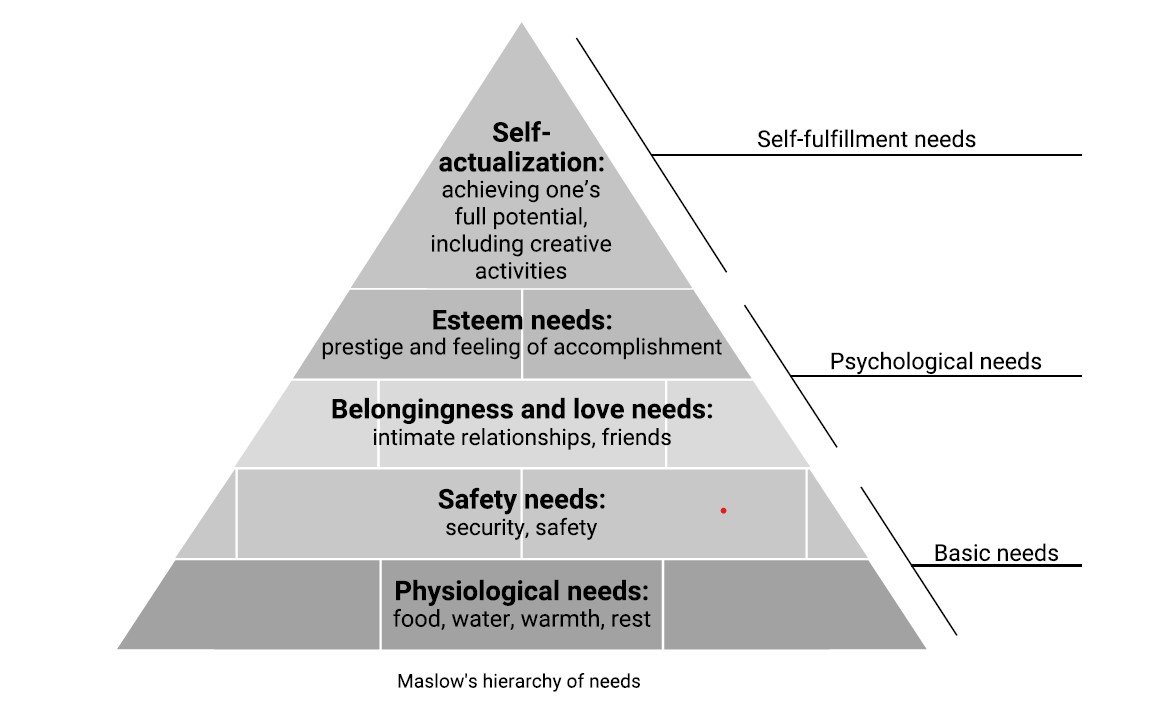Why We Sometimes Feel Unfulfilled Despite Achieving “Success”
“I had this ache, this feeling in my bones it wasn’t right.”
Meet Bill Novelli. At the time he felt this, he was quickly climbing the corporate ladder in the marketing world in what he likes to describe as the “Mad Men-era of marketing.” That’s right, think about Jon Hamm enjoying his three-martini lunch, a bottle of scotch in his desk, and an endless supply of power suits. Note—I may have extrapolated a bit from Bill’s description.
Yet, despite this enviable career position and trajectory, Bill was still uneased. This feeling despite having what society deems as “success” is something I personally can relate with all too well and is a common trend throughout many of our stories.
So, in hopes of finding his passion, Bill shifted roles to go work for an equally impressive ad agency. Yet, despite the change, the ache just kept growing until finally Bill got his wakeup call.
“I got back from a client meeting and I was working on two new products. One was a soft, moist, extruded dog food and the other one was a kid’s cereal. And this young copywriter came into my office and he said, ‘Hey, we’re working on concept statements for the kid’s cereal. Do you have any samples?’ So, I reached into my briefcase and I took out a package of this soft, moist, extruded dog food and threw it across the room to him and I said, ‘Yeah, here.’ And he caught it and said, ‘Yeah, we can sell this.’ And it hit me. ‘I’ve got to get out of this business.’”
Imagine that. You’re working at a company, busting your butt trying to make creative ads for your clients. You are getting paid very well to help sell things like dog food and cereal. Yet, you are so apathetic about the work that the products are interchangeable. Perhaps even worse, your company is so good at what it does that your colleague has no issue with creating a kid’s cereal advertisement using a sample of soft, moist, extruded dog food. Now, I’ve had some terrible cereal in my day, but even I couldn’t stomach that!
This seems like the perfect time to introduce the notion of Maslow’s hierarchy of needs because the bottom layer of the hierarchy has to do with our physiological needs, such as food (hopefully something tastier than dog food), water, clothing, etc.
Abraham Harold Maslow was a psychologist who pioneered self-actualization theory. In a nutshell, Maslow argued we all have a hierarchy of needs we want to satisfy. These needs range from the very basic necessities of life (i.e., physiological needs) to the highest order need of self-actualization. As we meet the needs of a particular level, our attention can then turn toward fulfilling the needs of the next step of the hierarchy (Maslow, 1943).
For example, Maslow’s hierarchy would stipulate that most of the time, if someone is starving or struggling to find food or shelter, that person would be concerned with basic survival and wouldn’t have the capacity to worry about love or a sense of belonging. That’s not to say the levels are always pursued in order, but individuals tend to gradually move from the bottom to the top.
Typically, individuals in the middle class or higher have the bottom two levels of the hierarchy under control and can focus on higher psychological needs such as building friendships, joining a community, building a network, finding a significant other, etc. Once those psychological needs are met, individuals then reach the self-actualization stage to live up to their own potential and achieve greater fulfillment (Sullivan, 2019).
Returning to Bill, after a lengthy process that involved vulnerability, trust, and reflection (learn more about Bill’s process in Chapter 4 of Redefining Success) it was clear that his career progression early in his life was misaligned with his true priorities, leading to this feeling of unfulfillment and emptiness at work.
Bill made a massive pivot that brought him more fulfillment and “success” than he could have imagined. He eventually went on to become CEO of the AARP (American Association for Retired Persons). Yes, that AARP—the organization that helps over forty million people over the age of fifty. He also founded the Campaign for Tobacco-Free Kids and Business for Impact at the Georgetown University McDonough School of Business.
Additionally, he served as the executive vice president of CARE, an international relief and development nonprofit, and currently works on the boards of directors for the American Cancer Society, the Coalition to Transform Advanced Care, Capital Caring Health, and Strategic Partnerships. The list of appointments and accolades seemingly goes on and on and on. Learn more about Bill through his book, Good Business!
The man has found what self-actualization means for him —which is to leave a lasting legacy of positive impact on this world. Yet, none of this would have been possible without the tough decision to Redefine Success for himself early on his career.
What does self-actualization mean to you?
How does your current work & lifestyle provide you with fulfillment? Can it be improved?
Note: As an Amazon Associate I earn from qualifying purchases.
